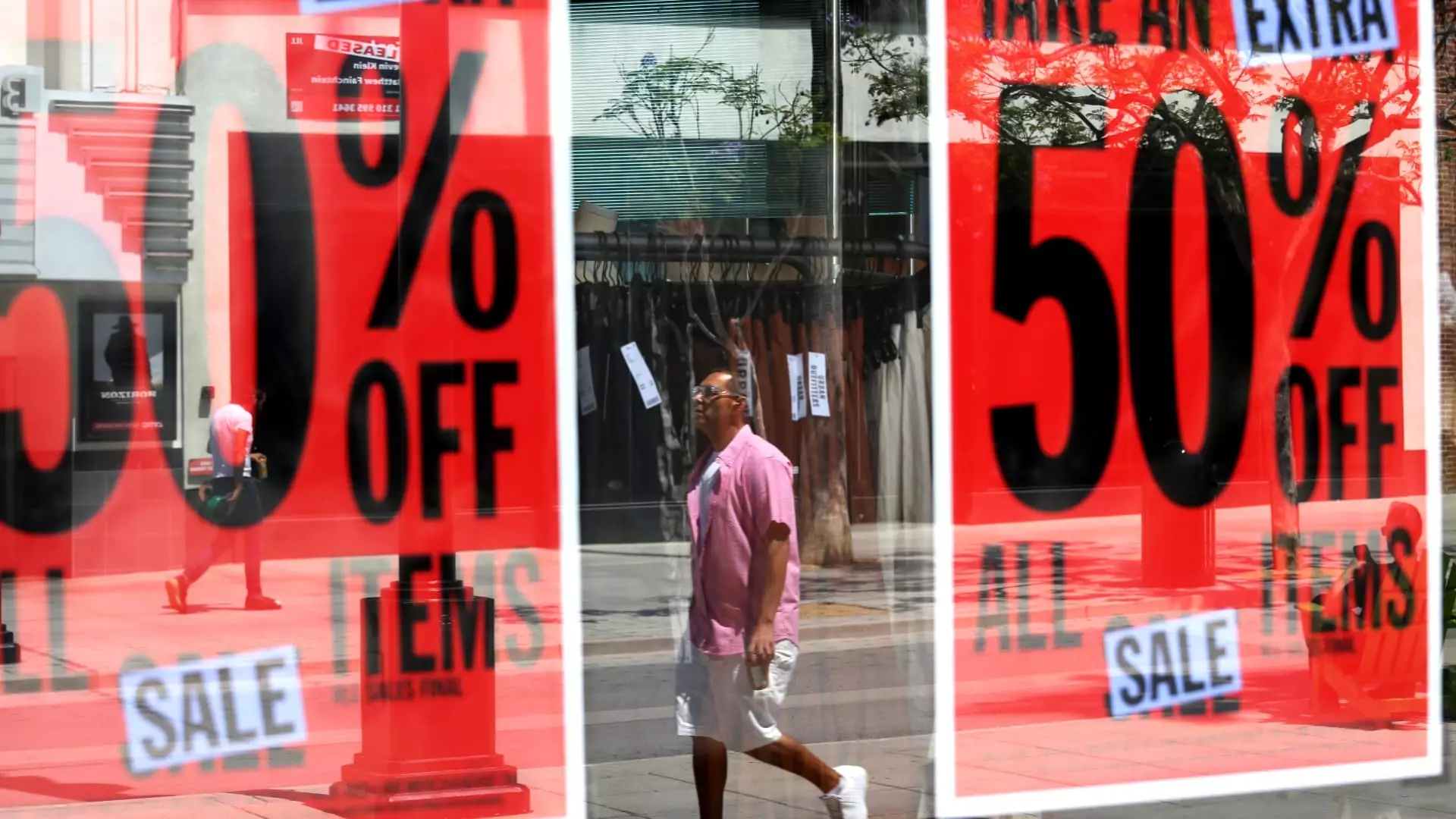In the world of retail, uncertainty is an ever-present challenge, but the stakes have escalated dramatically in light of President Trump’s ongoing trade war. As tensions rise between the U.S. and various economic partners, retailers find themselves navigating a treacherous landscape marked by unpredictability. Rather than simply weathering this storm, a range of businesses are adopting savvy marketing strategies to alleviate consumer anxiety and stimulate spending before potential price hikes take effect. The conundrum at hand for these retailers is how to drive consumer engagement while contending with looming tariffs, fluctuating prices, and potentially decreasing disposable incomes.
Many direct-to-consumer brands, from Beis to Bare Necessities, are framing the turbulent economic conditions as opportunities to inspire immediate purchases among shoppers. By cleverly positioning their products as time-sensitive offers to “buy now before it’s too late,” these brands are tapping into a psychological phenomenon that blends urgency with consumer choice. As consumers are made acutely aware of the impending risk of higher prices due to tariffs, they’re more likely to act quickly and make purchases rather than postpone them indefinitely. This clever marketing gambit allows retailers to instill a sense of urgency, persuading customers to commit to buying before their desired items inevitably increase in price.
The Impact of Tariffs on Spending Behavior
The implications of tariffs for consumer spending behavior cannot be overstated. With widespread fear that purchasing power will soon diminish, consumers are more inclined to buy now rather than gamble on future pricing. Interestingly, pre-tariff promotions have spurred a temporary surge in spending, particularly for big-ticket items. Retail experts suggest that although the initial reflex may be to view tariffs as merely a financial burden, they can, paradoxically, trigger a short-term spike in sales as consumers preemptively shield themselves from looming costs.
While it’s worthwhile for larger retailers like Target and Walmart to adapt their supply chain strategies to mitigate fallout from tariffs, smaller brands often face formidable challenges. Lacking the same global sourcing capabilities, these smaller companies are faced with a dual crisis: they must attract immediate spending while simultaneously grappling with the costs associated with delayed orders and uncertain supply. In an era of high competition and price sensitivity, the stakes are raised even further, underscoring the importance of innovative promotional strategies that can catalyze immediate cash flow.
The Role of Humor in Marketing
Amidst the turmoil surrounding tariffs, some businesses such as Beis have opted for a distinctive approach by wrapping their messages in humor and transparency. By eschewing corporate jargon, these brands cleverly acknowledge customer apprehensions while simultaneously providing an engaging touchpoint. Humor serves as an effective tool for diffusing tension in what many perceive as a dire economic situation. Targeting customer sentiment with light-hearted messaging can help cultivate goodwill and establish brand loyalty, even when faced with contentious political issues like trade policy.
The strategic use of approachable language and wit reveals the humanity behind corporate messaging, fostering an emotional connection with consumers. Acknowledging anxieties about prices and incorporating relatable humor into marketing materials enables companies to navigate a perilous political landscape without taking explicit stances, avoiding potential backlash from divided consumer bases. This approach signifies a shift toward building authentic relationships, resonating with consumers’ desires for sincerity even in the midst of uncertainty.
Sustainable Strategies for Survival
While many retailers are quickly implementing sales strategies to fend off declining consumer spending, it is essential to recognize the sustainability of such tactics in the long haul. Rapid solutions like pre-tariff promotions might stave off short-term declines in revenue but could risk marginalizing the brand’s long-term positioning. As some retailers capitalize on immediate fears, they must ensure that their efforts do not erode margins beyond recovery. Striking the right balance between urgency and sustainable practices will determine how effectively businesses can weather the trade war’s repercussions.
Equally important is the need for retailers to be forward-thinking in their approach to the shifting market landscape. Adapting supply chains, exploring new sourcing options, and diversifying product offerings can create resilience in the face of adversity. Building customer loyalty through experiences, reliability, and engagement can ultimately insulate brands from the tide of uncertainty. Embracing a comprehensive strategy that acknowledges current challenges yet fosters long-term growth will be critical for any retailer hoping to thrive during these tumultuous times.
The trade war not only tests retailers’ creativity but also their strategic foresight as they maneuver through unprecedented challenges. While they can harness immediate consumer fears to enhance sales, it will take thoughtfulness and innovation to emerge stronger on the other side.

Leave a Reply